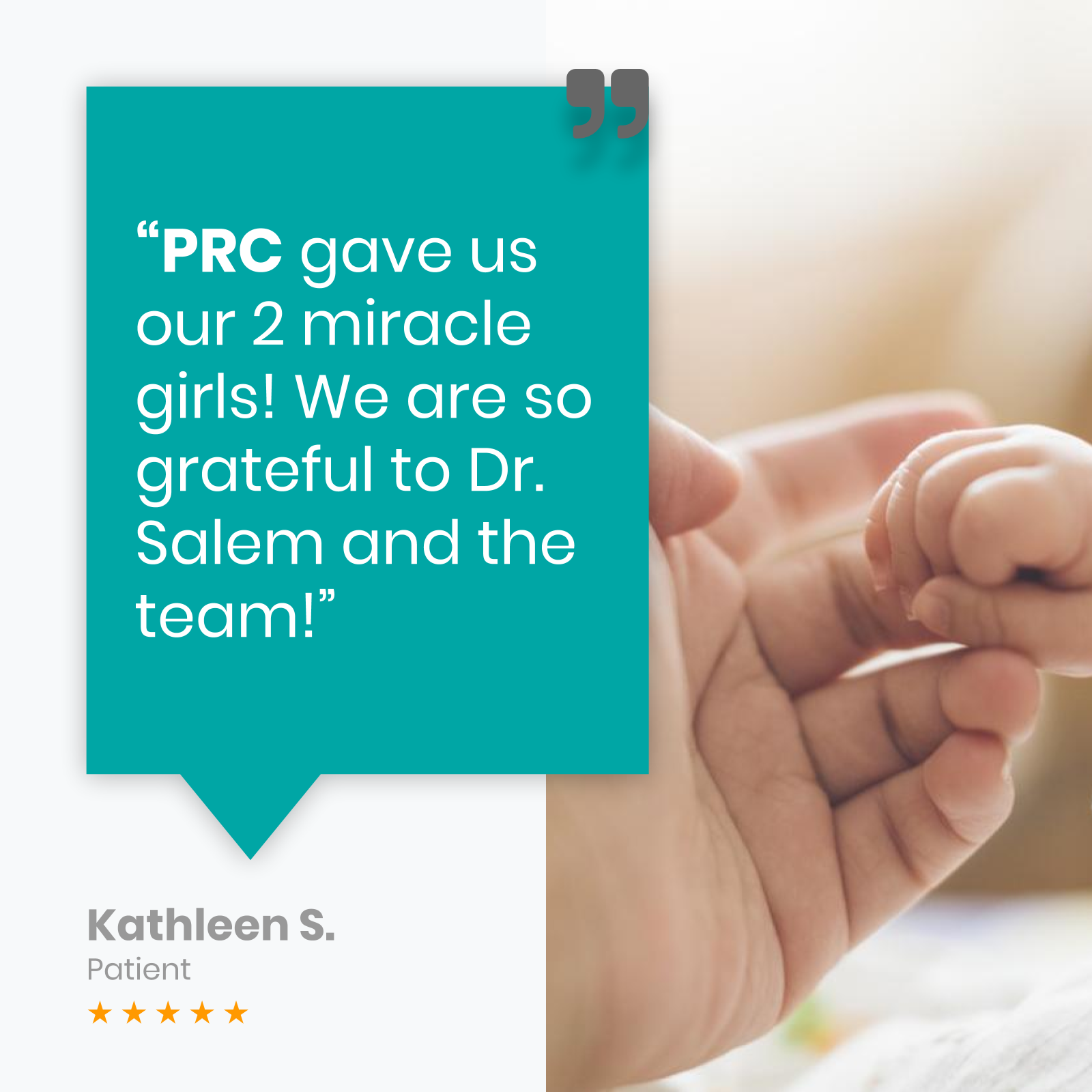Many potential parents who struggle with fertility challenges want to know why.
If you and your partner have undergone fertility testing that didn’t provide conclusive answers, preimplantation genetic testing (PGT) may help. PGT assists patients in learning more about their embryo(s) health, reasons behind fertility difficulties, and chances for a successful pregnancy.
Comprehensive preimplantation genetic testing can also dramatically reduce your risk of passing severe medical disorders to your offspring.
If your fertility treatment solutions include IVF, it is essential to learn about the different types of testing and how they can help lower your odds of a failed pregnancy. Contact us today to learn more, or continue reading below.
What Is PGT?
Preimplantation genetic testing is a diagnostic fertility treatment test that identifies potential genetic irregularities within embryos created by in vitro fertilization (IVF).
These tests help your fertility doctor choose the best embryo to transfer into your uterus, lowering your risk of passing on genetic disorders to your offspring and miscarriage.
Doctors perform these three types of PGT tests on embryos during IVF:
- Preimplantation genetic screening for abnormal chromosome number (PGT-A)
PGT-A is typically offered to women over 37 with a history of miscarriage or failed IVF cycles. Your doctor may also recommend this test if you have a family history of chromosome problems. - Preimplantation genetic testing for monogenic disease (PGT-M)
PGT-M is designed for individuals who have a known risk of having a child with a specific genetic disorder. - Preimplantation genetic testing structural rearrangement (PGT-SR)
PGT-SR helps determine whether embryos created through IVF have chromosomes arranged abnormally (inversion) or not sized correctly (translocation).
These tests serve two essential purposes. The first is to identify and disqualify embryos with genetic abnormalities as they can cause failed implantation and miscarriage, ending in an unsuccessful IVF.
The second purpose is to identify and disqualify embryos with genetic irregularities, as they can cause a child to be born with a genetic disorder, leading to death or severe health conditions.
Preimplantation Genetic Diagnosis (PGD)
Potential parents with a family history of particular disorders can benefit from preimplantation genetic diagnosis (PGD) screening for inherited conditions.
PGD is a specialized procedure that screens for a broad spectrum of genetic disorders and abnormalities that could inhibit fetal gestation. The process also screens for inherited conditions that could lead to serious and potentially tragic medical issues.
With PGD, only embryos free of disease and potential complications are implanted or frozen for later use.
Candidates for PGD include:
- Women over 35.
- Carriers of sex-linked genetic disorders, chromosomal disorders, or single-gene disorders.
- Women who have suffered recurrent pregnancy loss.
- Couples who have failed other fertility treatments.
We encourage preimplantation genetic screening (PGS) for potential parents without a family history of genetic disorders but with a higher risk of experiencing abnormalities during pregnancy.
How is Preimplantation Genetic Diagnosis Done?
During IVF, doctors check embryos for genetic issues using PGD. They take a few cells from the embryos and test them to see if they have any genetic problems. This helps them choose healthy embryos to implant in the uterus, increasing the chances of a successful pregnancy and a healthy baby.
Preimplantation Genetic Screening (PGS)
Although PGD is a highly effective solution for identifying inherited medical anomalies, PGS offers potential parents the added security of identifying chromosome malformations that can lead to miscarriage or significant abnormalities in surviving children.
According to the National Library of Medicine, for women over 44, the percentage of embryos with chromosomal defects can be as high as 90%. That’s where PGS can be most beneficial.
Many potential parents with specific concerns about passing a dangerous genetic trait down to a child of a particular sex opt for PGS because it is the only screening tool for selecting the child’s gender. Those with a family history of disorders like Turner syndrome, Hunter syndrome, and Rett syndrome should seriously consider PGS in addition to PGD to minimize their child’s risk.
After the initial consultation, couples meet with a coordinator to discuss their personal and family medical histories. The doctor determines the risk for a genetic disorder and can proceed with a blood draw from both partners. A diagnostic protocol is then put in place.
Understanding Preimplantation Genetic Screening Cost
The cost of PGS can vary widely depending on several factors, including the location and reputation of the clinic, the specific testing methods used, the number of embryos being tested, and whether additional services such as embryo freezing or genetic counseling are included.
On average, PGS can range from several hundred to several thousand dollars per embryo tested. It’s essential to consult with your healthcare provider and insurance company to get an accurate estimate of costs and any potential coverage options available to you.
Get Peace Of Mind With Preimplantation Genetic Testing in California
Genetic screening technology empowers parents with the tools they need to achieve healthy pregnancies.
Our fertility specialists at Pacific Reproductive Center have helped hundreds of patients overcome their reproductive obstacles using leading-edge tools and resources designed to quickly and accurately identify irregularities that lead to miscarriages or life-threatening conditions in surviving children.
If you’re interested in preimplantation genetic testing, please call us at 424-340-0871 or use our online contact form to schedule a consultation.
Looking for the Best Fertility Clinic in Southern California?
Pacific Reproductive Center has four convenient locations throughout Southern California, making it easy for patients to receive quality care close to home. Each IVF fertility center has an on-site lab, next-generation services, and state-of-the-art equipment.
Whether in Glendale, Torrance, Irvine, or Corona, our world-class fertility doctors can help you build the family you’ve always wanted.
3720 Lomita Blvd, Suite 200 Torrance, CA 90505
116 E. Broadway, Suite 300 Glendale, CA 91205
10 Post Irvine, CA 92618
381 Corporate Terrace Corona, CA 92879




